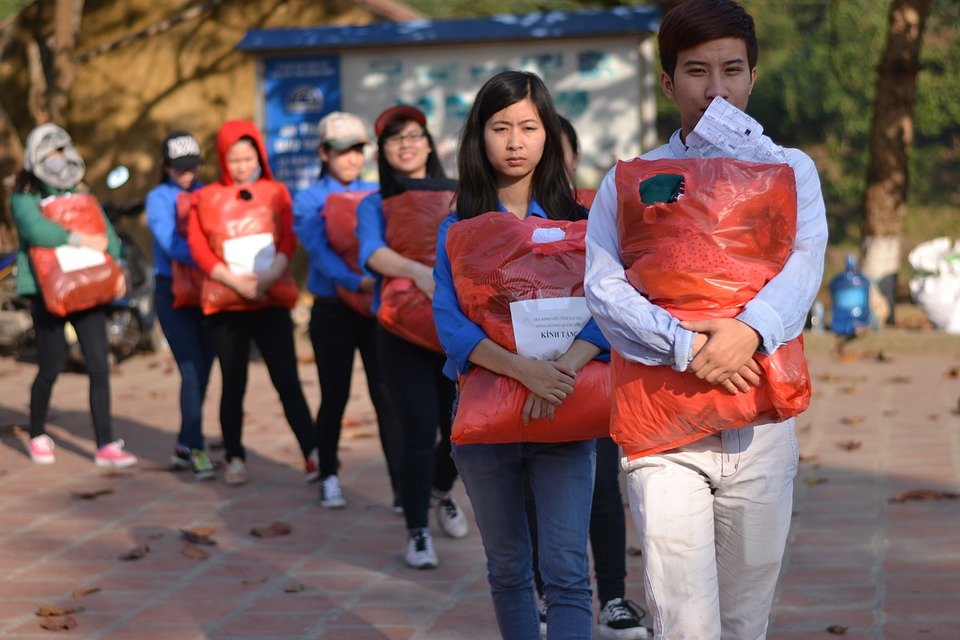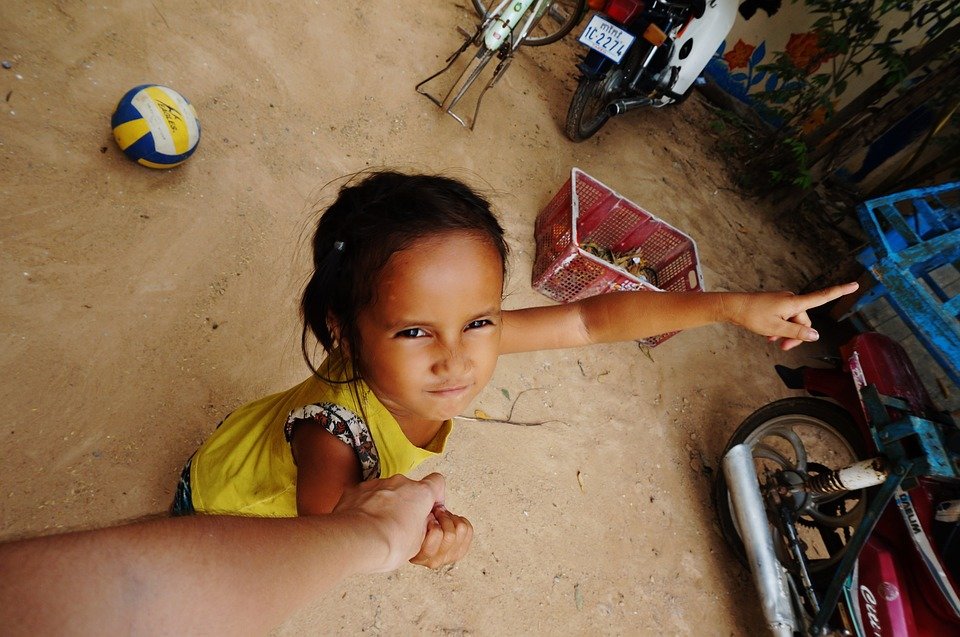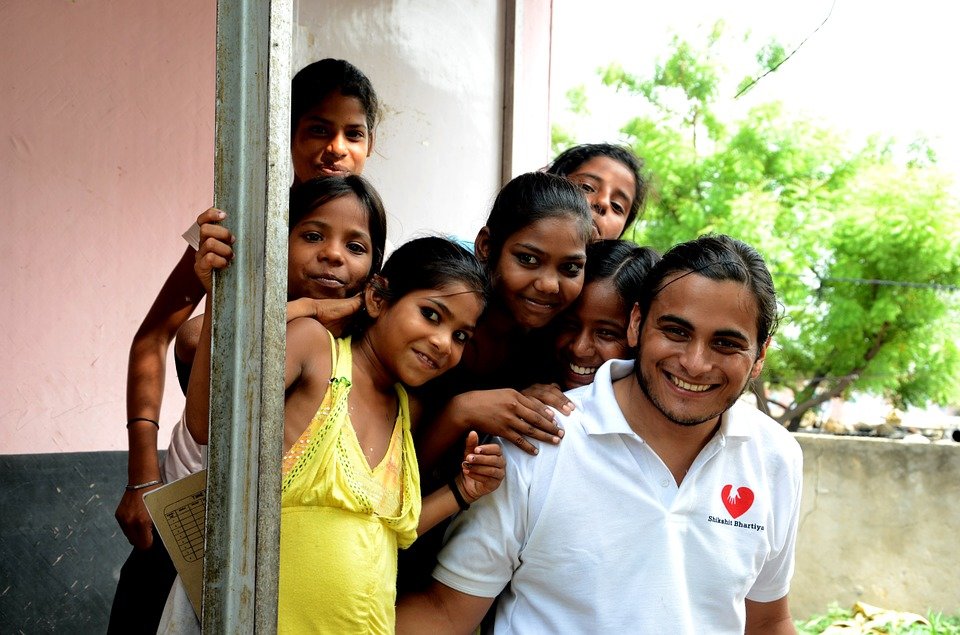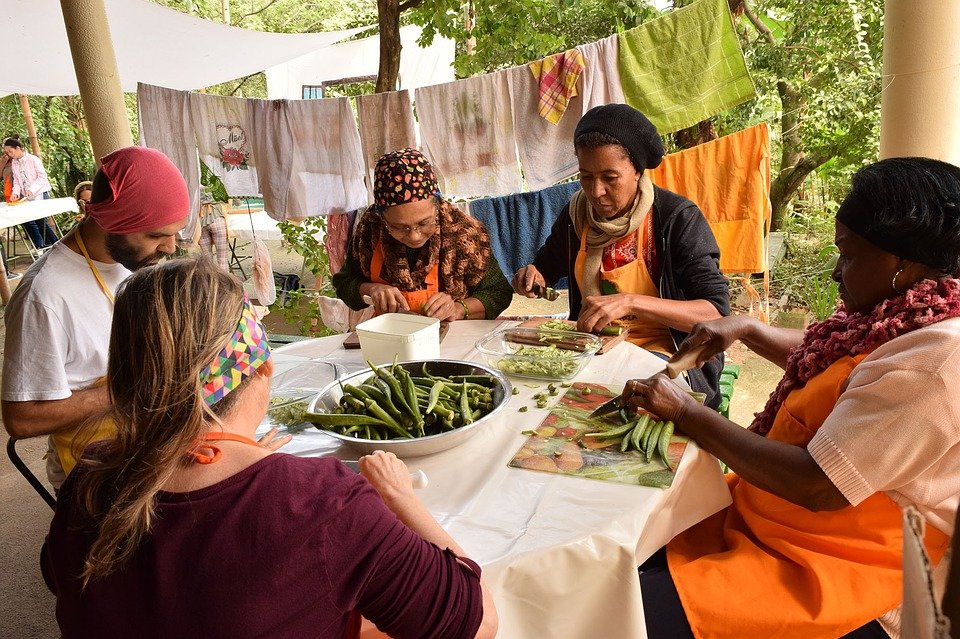How Much Impact Does an International Volunteer Actually Have?

In the world of volunteering, this here is the million-dollar question: do volunteers, coming from abroad to dedicate their time and money toward a worthy cause, actually do good? The question that has sparked impassioned arguments in the New York Times and provocative articles. The question that every volunteer stops to ponder. The short answer is yes. But then again, no.
If you are looking for a quantifiable amount, I can't give you that. Exactly how much good volunteers are doing is immeasurable. But what I can tell you, as a seasoned volunteer and director of a non-profit, is what I have seen in the volunteer industry -- both positive and negative. Through discussions with fellow volunteers around the world, research on the subject and a few years worth of self-reflection, I’ve come to the conclusion that at this point in time volunteers can and do make an impact. How much and how often, though, are another story.
This discussion over the impact of international volunteers can get heated and controversial. The perspective provided is not meant to antagonize any individual or organization. It is merely looking at trends in the growing industry of international volunteerism and trying to determine what the outcome looks like. For all those who are thinking about volunteering abroad or have already, hopefully this will help you decide for yourself what sort of an impact you can have, and inspire you to look deeper into volunteering responsibly.
What Does It Mean to Be Doing Good?
To begin with, we need a consensus as to what the phrase "doing good" means in this context. What characterizes a volunteer as "doing good"? Creating a sustainable project? Providing meaningful training? Making some schoolchildren laugh?
For the purposes of this article, I'll define "doing good" as leaving a positive impact on a group of people, such that they are left with tools to better their own lives. These tools could be tangible, such as a new water well, or intangible, like IT training or cultural understanding. Furthermore, "doing good" implies that the target group is not negatively impacted by the volunteer's presence.
How much good a volunteer can do is dependent on several factors, most importantly the kind of organization the volunteer goes through, the expertise of the volunteer and how the volunteer behaves abroad.
The Host Organization Factor

Program Length
The length of the program you select will immediately determine how much good you can do. When it comes down to it, long-term volunteers are inevitably going to make a bigger impact than short-term volunteers. With the exception of highly skilled volunteers, such as doctors who come over for a 1-2 week mission trip (i.e. Operation Smile), the majority of volunteer impact comes from those who are donating a significant amount of time and energy to a project.
Factoring in the amount of time it takes to adjust, joining a program for less than 3 months will make it much more difficult to do good. Before you can really be of use to the organization, you'll need to understand what is going on and how you can be of use. The Peace Corps, for example, allows their volunteers almost the entire first year just to assess the situation and adapt to the culture before taking on a project.
As a short-term volunteer, your biggest asset will be raising awareness back at home
Understandably, not everyone is able to dedicate more than few months abroad, especially when not being paid. There are ways around this issue though -- particularly based on the program you join and the projects they are implementing. Projects that don’t require specific training or contextual background are more suitable for short-term volunteers. Projects that are ongoing and require manpower may also be a good fit. Finally, if you only have a small amount of time, consider how you can pass along knowledge rather than doing the work yourself.
Skilled labors in Guatemala can be hired to build a library and this supports local economy. But perhaps they’ve never been taught some of the more conceptual ideas of engineering. Beyond this, as a short-term volunteer your biggest asset will be raising awareness back at home. Your week in Laos probably didn’t make a huge dent there, but your ability to share what you experienced could focus attention where it is needed most.
Responsible Organizations
The ability of the volunteer to do good will also depend on the organization s/he partners with. Several key ideas stand out when you look for a responsible organization: sustainability, self-awareness and capacity building.
Organizations who have a long-term history in a country are a good place to start. This demonstrates a commitment to the people and the cause. Sustainability is something any volunteer, no matter how long they are abroad, should consider. How can the organization continue your work after you have left? If the organization cannot maintain your work, then the good you can do is exponentially minimized. The organization should be constantly evaluating their work and its impact, assuring that they are working toward their goals. They should be in tune with the needs of the local community and critical of how their organization goes about helping to meet those needs. It’s a cyclical process.
As Go Overseas's ever-eloquent Jessie Beck wrote in our article about the traits of a responsible volunteer program, "any organization working with development, whether as a volunteer placement agency, NGO, or for profit company, should essentially be working themselves out of a job by building capacity within the community to do the job they initially set out to do." This is exactly right. We don’t want to be doing the same development work 50 years from now. If we are, then surely we aren’t doing it right.
So as a volunteer what does this mean to you? Do your research! I cannot stress this enough. Sadly, there are too many examples of poorly run (or corrupt) volunteer organizations, and you don’t want to waste your time with those, right? So do things right:
- Compare your options.
- Understand the goals and mission statement and how their programs achieve those objectives.
- Speak with previous volunteers.
- Read reviews (like, *ahem*, here on Go Overseas).
- Look into the literature on volunteering abroad.
- Make sure the organization is financially transparent.
If you want to make a difference, start by finding a program that would allow you to do so. Still not sure about where to start your search? A few programs that stand out to us at Go Overseas for their responsibility and commitment to sustainable development are African Impact, which partners with local communities and conservation efforts to place volunteers in impactful projects, and GVN, which "believes that local communities are in the best position to determine their needs, and provides volunteers to help them achieve their goals."
The Type of Volunteer Factor

Skilled Volunteers
In order to improve the situation in developing countries, dedicated, skilled individuals are needed. A good majority of volunteers who come abroad have skills to share, though they often do not utilize them. If you want to do the most good abroad, start by focusing on your skill sets. Then, through discussion with the organization, decide how best to use these skills for the benefit of the target community. By coming into a community with knowledge to share based on the context, you are already significantly more likely to do good.
In many cases, the best thing a skilled volunteer can do is to provide training in order to build local capacity. From teacher training to business management, developing the skills of the local workforce will make a more lasting impact. Again, you are helping the local community so that they will be able to help themselves in the future, rather than be reliant on international assistance.
Take a web designer for instance. He may come to a country and start by redesigning websites for local non-profit organizations. These spiffy new sites look professional and improve fundraising. Yet, it is his second task of training a staff member on how to design a website that really benefits the organization.
The trained staff member now can update the website more often without having to outsource the work. S/he has an additional marketable skill and greater confidence. S/he can train other staff members and continue the cycle of capacity building long after the designer has been gone.
Unskilled Volunteers
Many of those who want to volunteer, however, may not yet have the skills to share. Especially those who are volunteering during high school or college, you may wonder how much good you are able to do. Alas, this is an important question to be asking. First, you must realize that you will not be able to do as much good as someone with more life and career experience can in your position. Second, understand that the kind of volunteer options available to you are greatly reduced.
Be wary of the kind of volunteer opportunities presented to you, based on your previous work experience. I say this in nearly every article I write because it is the single most important issue when it comes to volunteering: if you can't do it in your home country then you probably shouldn't be doing it abroad.
The best example that comes to mind is the constant influx of "teachers" coming to provide English lessons, without so much as signing up for a teacher training. Would you be allowed to walk into a classroom in the US and begin teaching? If your answer is a resounding "no", then would it be appropriate for you teach in Kenya or India? Probably not.
If you don't take the time to listen and learn, it is unlikely you will provide the assistance that is needed.
If you really are interested in teaching English abroad, take the time to get properly trained both at home and in the host country. You do neither yourself nor the organization any favors by showing up unprepared. And think of the students for whom this is not a break from reality; they show up for class expecting to learn a skill useful for their career.
That being said, there are opportunities for unskilled volunteers with a clear purpose. You can assist in a classroom, helping the students with pronunciation. Under trained professionals, you can join marine conservation efforts or help at an elephant sanctuary. As an unskilled volunteer, it is even more crucial that you look into the organization and the work they are doing. You need supervision and and the certainty that someone with experience will be running the show.
The Factor of Volunteer Characteristics

Expectations and Awareness
Everyone has his/her own reason for volunteering abroad. But, regardless of what you expect to get out of it, go into the experience realizing that you're not going to change the world. And you're definitely not going to "save" it either. But you can still make a difference. Moving to a mindset of working towards a greater good will help you do good -- after all, volunteering isn't about personal achievement.
That said, volunteers overall have their hearts in the right place. However, how those intentions manifest themselves can be become an issue. As in any experience abroad, culture and context play a major role. By doing research and asking the right questions you can get a more realistic idea of what you can be doing to help. If you don't take the time to listen and learn, it is unlikely you will provide the assistance that is needed.
Actions and Consequences
Being responsible doesn't just come down to the organization. It is also on the volunteer to make sure they are acting in a way that is going to not detract from their time in the host country. If you are working at a school during the day, but are garnering a poor reputation for your weekend escapades, what kind of good do you think you are doing?
How you interact with the locals your adherence to customs, and your open-mindedness will all reflect back on you and your organization. And down the line this can affect your project and how successful you are. Your maturity and the seriousness with which you approach your volunteer work are two major components in determining how much good you will do.
For both skilled and unskilled volunteers, remember that while your time as a volunteer may be a great learning experience, you never want to be taking jobs away from locals. If coming in and providing free services means that locals in that field will no longer have work, then you need to think again about whether you are in fact doing good.
The Longer-Term, Indirect Effects
The indirect consequences on the volunteers should not be dismissed when discussing how much good volunteers do. The experience of volunteering abroad inevitably has an impact upon the volunteer. And these impacts can be lasting, changing the way in which the individual sees the world s/he lives in and his/her path in life.
Let's take another example: a group of high schools students spend a month helping running a summer camp in the Dominican Republic, playing soccer and practicing English with children. Both have a lot of fun! At the end of the month, the children come away with some pretty great memories. Their lives haven't been drastically altered, but two things have happened.
The student volunteers are beginning to understand what poverty looks like. They are becoming more culturally aware. Meanwhile, the Dominican children are out of trouble, speaking English, and learning about the world outside of their country, a world they may have not known much about previously.
America is regularly criticized for being too self-involved and that our society pays little attention to what happens around the globe. Assuming the students running the camp are acting appropriately and the program is sustainable, are these students doing good? I would argue that they are. Perhaps not in a deep, life-changing way, like a skilled volunteer might be able to provide. But cultural exchange is increasingly important in this global community.
Learning that there’s not just one way to live and discovering true benevolence will benefit you both personally and professionally.
Compassion for those unlike you, the ability to connect, the patience to listen. These are attributes that often cannot be taught but must be experienced. My first time volunteering abroad I was able to contribute little to the target community. But I soaked it all in. The experience led me to a career in international development, doing good in various other communities. Thus the ripple effect, spreading out from that initial experience. A career in development may not be in your future, but learning that there’s not just one way to live and discovering true benevolence will benefit you both personally and professionally.
The United Nations declared 2001 the "International Year of Volunteer." It has been nearly 20 years, and the volunteer field has boomed so much so that it has turned into an industry of its own. We have moved past the point of viewing international volunteer work with rose-colored lenses. It has become apparent that volunteers can have a detrimental effect on the communities they intends to help.
From this comes questions as to whether volunteering has become a form of neo-colonialism and discussions about volunteering as the new "White Man's Burden." These are healthy debates to be having; they help this budding industry maintain moral integrity. Meanwhile, there’s (finally) a growing interest in what it is like to be on the receiving end of foreign aid and, subsequently, volunteerism. So guys, do your research, be smart, and have a realistic understanding of your impact as a foreign volunteer.
